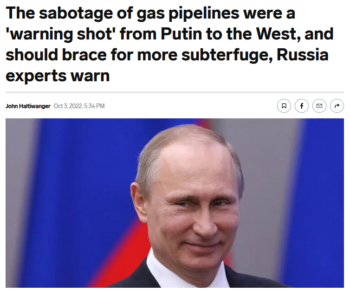Even as Russian President Vladimir Putin repeatedly warns he could use nuclear weapons if he believed Russian (or Russian-seized) territory was threatened, tensions also remain high in other potential nuclear flashpoints from North Korea and Taiwan to border regions of China, India and Pakistan.
This comes as the North Atlantic Treaty Organization (NATO) has just embarked on its annual nuclear training exercises in Belgium. The U.S. has an estimated 100 non-strategic nuclear weapons deployed at six military bases in Belgium, Germany, Italy, the Netherlands and Turkey. Russia is expected to hold its own nuclear exercises soon, though U.S. officials say no notification has yet been provided as required under the New START treaty.
On October 6, President Joe Biden warned that the threat of Armageddon was at its highest point since the 1962 Cuban Missile Crisis. While the world remains focused on the threat of nuclear war, scientists, academics, and other experts are warning how a nuclear conflict would change life on Earth.
Recent reports coauthored by Alan Robock, a distinguished professor in the department of environmental sciences at Rutgers University, paint a portrait of a post-nuclear war world that is colder, darker and hungrier than is usually described in nuclear reporting.
In these reports, scientists explain how nuclear weapons, if used in a range of circumstances, could cause firestorms that would release smoke, soot and pollutants into the upper atmosphere, blocking sunlight and causing a sudden cooling effect long known as “nuclear winter.” Such a disturbance would impact the world’s oceans and dramatically undermine food security, potentially causing a large-scale collapse of agriculture that could lead to global famine.
In the journal AGU Advances, scientists report that global cooling caused by a nuclear war could disturb ocean and sea ice ecology for decades or even centuries, killing off marine life and disrupting natural systems.
A second report published in Nature Food illustrates how nuclear weapons, like enormous wildfires, would unleash soot into the stratosphere that could persist for years. Similar to historic massive volcanic eruptions, destruction resulting from the use of nuclear weapons could lead to sudden cooling on a global scale, resulting in widespread crop failure, famine and extreme political instability.
Under a range of nuclear war scenarios, multiple nuclear detonations between 15 to 100 kilotons could kill tens or hundreds of millions of people in a matter of hours or days. U.S. non-strategic nuclear warheads range from 0.3 kilotons to 170 kilotons. The bombs that destroyed Hiroshima and Nagasaki were approximately 15 and 21 kilotons respectively.
In the event of a major nuclear war between Russia and the United States, a resulting nuclear winter could cause as many as 5.3 billion people to die of starvation within two years of such a war.
With sunlight blocked, staple crops like wheat, maize, rice and soybeans would rapidly fail, leaving the world suddenly short of enough food. Countries in northern latitudes (including nuclear-armed Russia, the United States, the United Kingdom, France, China and North Korea) would see the greatest decline in calorie production.
Following a regional nuclear war between India and Pakistan, calorie reductions may be less severe, but depending on the scenario, other problems like the destruction of infrastructure, radiation poisoning, large-scale death and political upheaval would offer the coldest of comfort.
The disruption to agriculture and resulting food shortages would not be evenly distributed, suggesting some countries in southern latitudes like Australia and New Zealand could experience relatively less severe climate impacts but would face unprecedented waves of refugees fleeing nuclear and climate-impacted countries.
The Nature Food study’s authors conclude: “…the reduced light, global cooling and likely trade restrictions after nuclear wars would be a global catastrophe for food security.”
Speaking with Truthout Robock, who has been studying nuclear winter since 1984, said that while current computer models are more comprehensive, the basic idea that if sunlight is blocked, the Earth’s surface will be colder and darker hasn’t changed since he began studying the threat.
In the 1980s, after Robock, his colleagues and their Russian counterparts presented similar findings to Ronald Reagan and Mikhail Gorbachev, the U.S. and Russian leaders issued a joint statement declaring that “a nuclear war cannot be won and must never be fought.” The same declaration was repeated by the UN Security Council’s five permanent members (P5) with nuclear weapons (Russia, U.S., China, France, U.K.) last January, but their subsequent rhetoric and actions call their commitment to not using nuclear weapons into question.
Unlike in the 1980s, when massive demonstrations against nuclear weapons pressured leaders to sharply reduce their arsenals, today’s threat of nuclear war has not yet translated into worldwide protests.
“We’ve calculated [that] even though the number of weapons has gone down, there’s still enough to produce a nuclear winter if Russia and the U.S. have a nuclear war,” Robock says, noting that unlike the other nuclear-armed nations whose arsenals are limited to no more than a few hundred, both the U.S. and Russia still maintain thousands of nuclear warheads.
“If you wanted to threaten the use of [nuclear weapons] to deter an attack, how many do you have to put on the capital of your enemy? The answer is one,” he says. “Maybe you need two, but a couple hundred is more than enough, so why don’t the U.S. and Russia get down to a couple hundred right now?” Such a reduction in stockpiles, Robock says, would greatly reduce the danger of nuclear winter.
The climatological effects of a nuclear war, Robock says, are not the same as trying to counter the effects of climate change through methods like stratospheric geoengineering or climate intervention. “This would be instant climate change, not gradual climate change. A nuclear winter would cool down a lot and kill all of our crops.”
A Medical Disaster
In February, the International Campaign to Abolish Nuclear Weapons (ICAN) published a report entitled “No Place to Hide: Nuclear Weapons and the Collapse of Health Care Systems” which examined how the detonation of one nuclear bomb could affect 10 major cities. Casualty projections ranged from over 260,000 to more than 1.2 million injured from a single 100-kiloton bomb.
Hospitals and medical systems in cities like London, Beijing or Washington, D.C. no matter how well-equipped, would be unable to adequately respond to a nuclear bomb. Tens or hundreds of thousands of patients in need of care for severe burns, cuts, broken bones, concussions, radiation poisoning, and other grave injuries would overwhelm doctors and nurses. Hospitals would almost certainly be damaged and destroyed, with health care professionals among the dead and injured. Those needing emergency treatment would likely be far greater than the number of patients seen at the peak of the COVID-19 pandemic.
The likely damage to vital communications and transportation infrastructure and other critical technology would make it difficult or impossible to provide even basic care as computers, vehicles, and medical and lab equipment were severely disrupted or rendered inoperable. Essential water, electricity and sewage systems could be cut off and in the near term there would be an immediate shortage of medication and medical supplies. In the long term, supply chains that deliver medicine and equipment would be severely impacted.
For years, the International Committee of the Red Cross (ICRC) has also warned that no medical system would be able to respond to the use of nuclear weapons of any size or number. In the words of former ICRC President Peter Maurer, “if a nuclear weapon were to detonate in or near a populated area, no state or international body could adequately address the immediate humanitarian emergency nor the long-term consequences, nor provide sufficient assistance to victims.”
A Civilization-Ending Event
Ira Helfand, a longtime emergency room physician and co-chair of Physicians for Social Responsibility’s Nuclear Weapons Abolition Committee, spoke with Truthout by video call from Massachusetts.
Helfand likens the current nuclear crisis to a global near-death experience, but says that unless humanity recognizes how close we are to death, we risk failing to take the action needed to reduce the threat and avert a future catastrophe. Without profound change, he worries we will not address the underlying conditions that led to the current crisis.
Helfand cites the importance of recent scientific reports in helping make the connection between the climate and nuclear crises. He says that not only would a nuclear war cause a climate disaster, at the same time, the climate crisis increases the chance of a nuclear war. As large regions of the planet are rendered unfit for human habitation, global tension will increase, with climate catastrophes creating more refugees.
“People are talking about the need to relocate perhaps more than a billion people,” says Helfand. “That doesn’t happen smoothly and easily. That generates enormous amounts of conflict.” Ten or 15 years from now when the climate crisis has worsened, the movement of tens or hundreds of millions of people will cause tremendous political instability. If nuclear weapons are “still on the table,” Helfand says, there’s a greater chance they may be used.
He points to burgeoning climate crises in North Africa, the Middle East and South Asia where he fears two nuclear-armed countries — India and Pakistan — are on a collision course, not because of ideology, religion or political doctrine, but because of water. Melting Himalayan glaciers, catastrophic flooding, changing rainfall patterns and control over essential water flow could set the stage for a future conflict between Pakistan, India and China.
“We’re in a situation where there has to be a totally different way for great powers to interact with each other,” shifting from a model based on competition to one based on cooperation, Helfand says. “If such a crisis reaches its full fruition and becomes a military conflict between two nuclear-armed states, we’re going to have a civilization-ending event.”
The aftermath of a nuclear war would be chaotic as survivors fought for whatever was left. Any nation that might “come out on top” of a nuclear conflict would have the “ash heap of human civilization” to claim as its own, he says.
Before such a nightmare scenario occurs, Helfand sees an opportunity to come together if our leaders are honest, courageous, truthful and tell people what needs to be done. A paradigm shift in which nations recognize the need to cooperate is necessary if survival is to remain possible. “This just can’t go on indefinitely,” he warns. “Either we’re going to do something very fundamentally different, or we’re going to have a nuclear war and that needs to be clearly understood by everyone.”
This May Be the Last Time
Susi Snyder, financial section coordinator for ICAN, says that even a relatively small nuclear detonation would have a global ripple effect. She points to the COVID-19 pandemic as an example of how a large-scale disruption’s impact can continue for years.
When thinking of a nuclear weapon’s aftermath, Snyder says that beyond the death and destruction, there would be associated disruption of transportation, trade, commerce, travel and global markets. The current war in Ukraine has already fueled food and energy crises in multiple countries, and a nuclear war would be far worse. Any use of a nuclear weapon would jar commodity and resource markets, disrupting trade, creating instability and uncertainty, and suddenly driving the need for alternate sources of food, energy and raw materials. Such abrupt shifts could also threaten human rights and the environment in places that were suddenly in demand.
Depending on how limited or widespread the use of nuclear weapons was, much of what is considered “normal” for most people in developed countries — reliable communications, transportation, the availability of household utilities, food, consumer goods, and even travel and entertainment — could be disrupted or cut off.
The damage from even a relatively “small” or limited nuclear detonation would likely draw humanitarian aid away from other areas. Even in such a scenario, Snyder says, “every place will be affected in some way.” Because a nuclear threat has the potential to harm every part of the planet, Snyder says countries that are usually left out of the nuclear discussion are becoming more vocal, emphasizing the humanitarian and environmental risks to countries geographically far removed from nuclear-armed nations.
Post-Cold War notions that the threat of nuclear weapons is a thing of the past have quickly faded and frustration is growing as the Treaty on the Non-Proliferation of Nuclear Weapons (NPT) has failed to end nuclear arms races or deliver complete nuclear disarmament.
Recognizing the urgent need to do away with nuclear weapons, 68 countries have adopted and ratified the much more recent Treaty on the Prohibition of Nuclear Weapons (TPNW) which entered into force in 2021. Unlike the NPT, the TPNW prohibits the development, testing, production, acquisition, possession, transfer, stockpiling or threat to use nuclear weapons.
None of the P5 nuclear weapon states or the four other nuclear-armed nations (India, Pakistan, Israel, North Korea) recognizes the TPNW. Instead, they embrace the theory of deterrence. Nuclear deterrence — the threat to use one’s nuclear weapons against another state — Snyder says, allows for naked conventional weapon aggression without fear of reprisal, as is being demonstrated by Russia in Ukraine today.
She also notes that there are dozens of multinational corporations which profit from nuclear weapons and have a vested interest in perpetuating their production. She says this raises the question, “Is it ok to incinerate a city in 30 minutes or less? If it’s legitimate, then the pathway is nuclear weapons for everybody. And if it’s not legitimate, then there really is one choice — to end nuclear weapons for everybody.”
In an age when it only takes 45 minutes to go from the decision to launch a nuclear weapon to a detonation that could abruptly bring about the end of life as we know it, we must deliberately and soberly consider the consequences of using nuclear weapons. The luxury of looking away is gone. People around the world — especially in nuclear armed nations — have a responsibility to pressure politicians to abolish these horrific weapons. Without a sharp increase in vocal and mobilized opposition to the unstable and unsustainable nuclear threat, the danger will continue and eventually, many fear, humanity’s luck will run out. Now is the time for each of us to take whatever action we can — because no one knows if or when nuclear weapons will be used again, very possibly for the final time.
This post was originally published on Latest – Truthout.

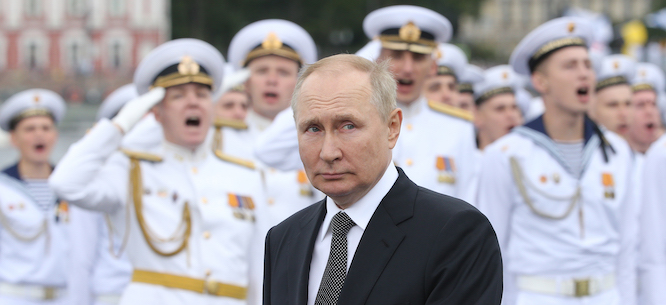







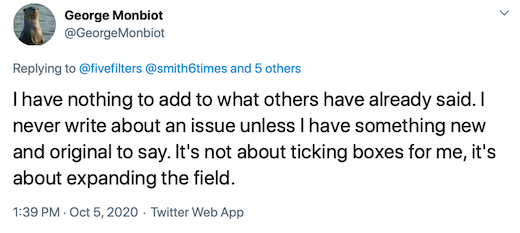
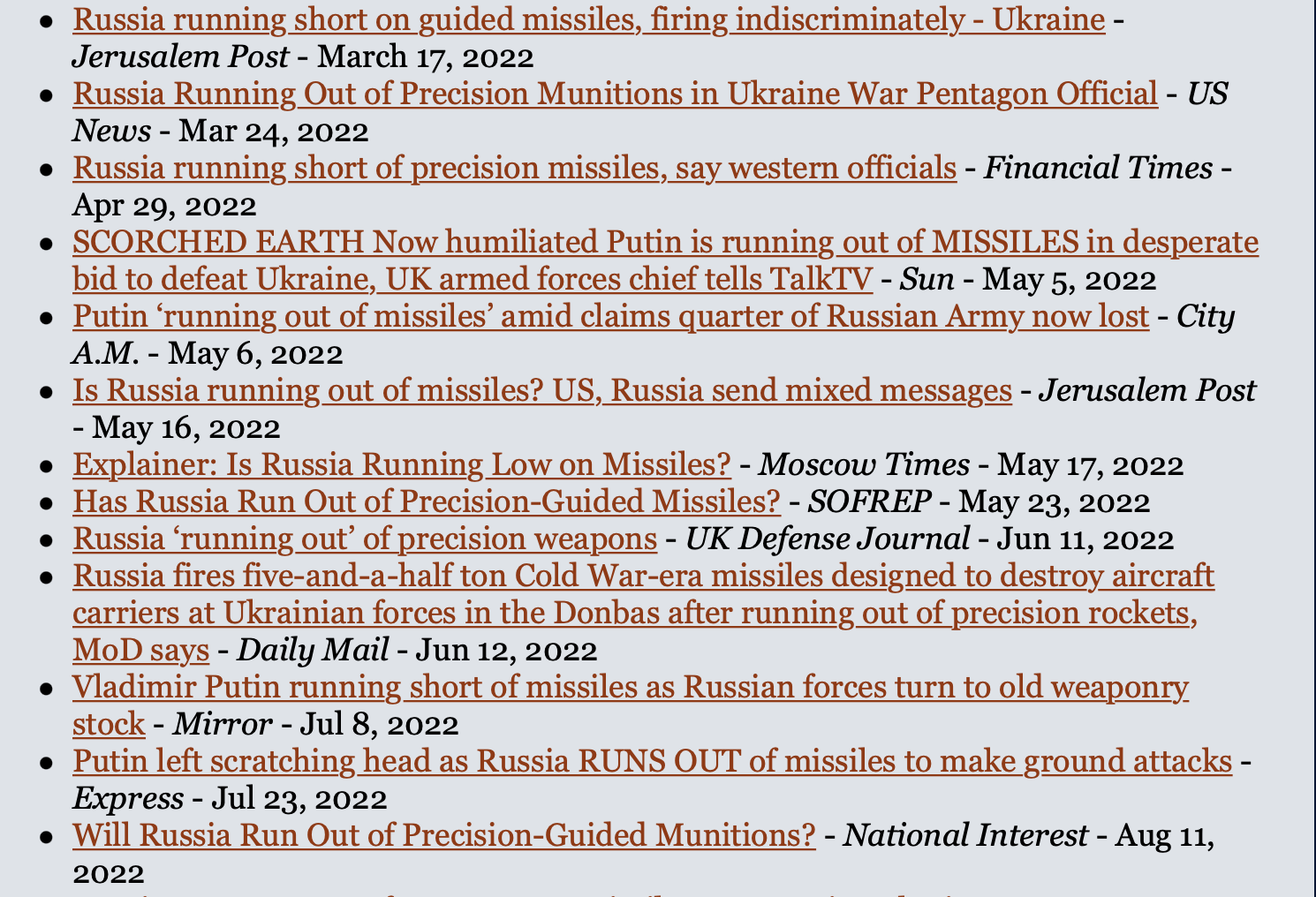
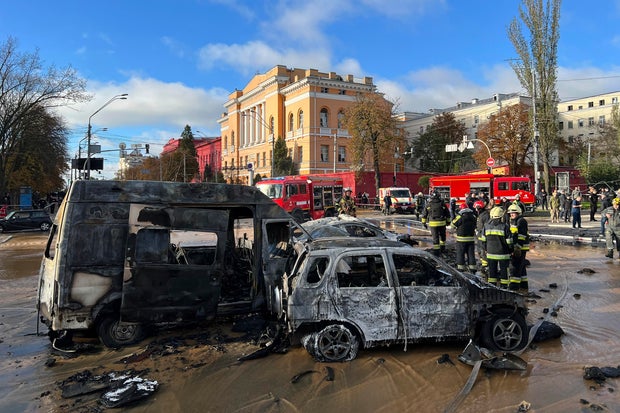



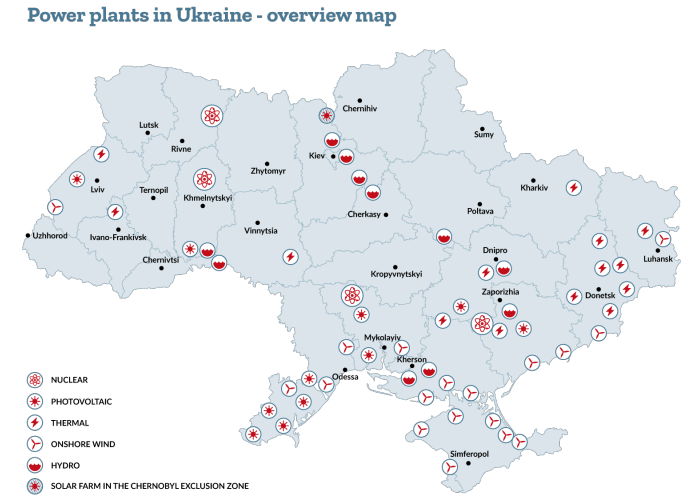



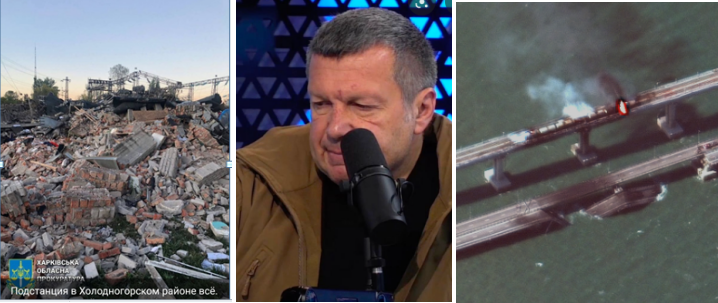

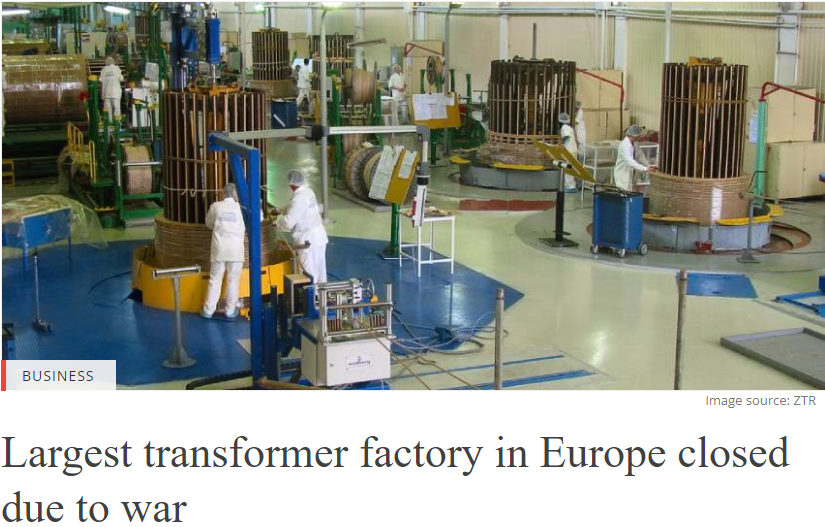




 (@Partisangirl)
(@Partisangirl) 




